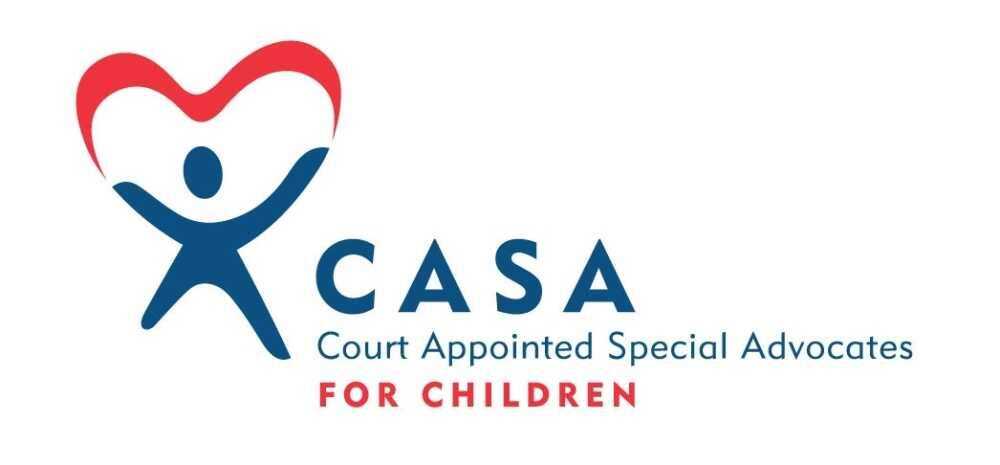TOP STORY OF THE DAY, brought to you free by WICU: CASA advocates play key role in giving help

Sarah Torbert-Tellechea is the director of the Clay County office for Court Appointed Special Advocates (CASA) for children, and her office currently serves 167 children in the county.
CASA volunteers can serve a large number of purposes for children who have been subject to one of the many varieties of abuse.
They may be appointed to volunteer in a divorce/custody/paternity, juvenile delinquency, guardianship, adoption or other case involving children.
Currently, more than 30 people volunteer their time each month to help in these difficult situations, but Torbert-Tellechea is always on the lookout for more.
Kinds of abuse vary greatly
Torbert-Tellechea recently went through her case load to try to distinguish how many different kinds of abuse, and admits the numbers cannot be perfect since, unfortunately, some cases involve multiple specific problems.
The “rough” numbers of her cases included the following number exposed to these factors:
| Neglect | 114 |
| Drugs/alcohol | 102 |
| Physical abuse | 23 |
| Domestic violence | 23 |
| Sexual abuse | 16 |
| Educational neglect | 4 |
| Medical neglect | 2 |
| Juvenile delinquency | 2 |
She noted that the numbers fluctuate, and she was surprised the number of physical abuse cases was as high as it was. Torbert-Tellechea also thinks she is now up to as many as five or six cases of juvenile delinquency.

The COVID effect
Clay County CASA saw fewer cases since the onset of the COVID-19 pandemic last year.
That fact likely does not guarantee a lessening of the number of bad situations that kids are in; it most likely means that cases are just not getting reported as often.
Torbert-Tellechea noted that students not being in school consistently during the pandemic is a major contributor to the lower number of reported cases.
“Teachers are the first line of defense against abuse,” she said. “If kids aren’t going to school, there aren’t teachers there to catch the neglect; the kids are literally just sitting in the neglect with nobody checking on them.”
Torbert-Tellechea could not speculate on whether the actual number of undetected cases in the home was larger than reported during the pandemic.
“We were still getting cases,” she said. “But unless someone was taken to the emergency room we likely didn’t get a report.”
From March 2020 to April of 2021, the Clay County CASA office picked up 101 new children.
“I want to say the year before that it was about 189,” she said.
The process
Torbert-Tellechea notes that the process starts with a call to the child abuse hotline (whether by a school, a neighbor, a pastor or anyone else).
Torbert-Tellechea the noted that the hotline worker decides if the case is going to be “screened out,” with nothing else happening, or if the case will be moved on to the local jurisdiction for its assessment team to go investigate.
The investigation team then has up to 45 days to look into the case and close the assessment.
An informal adjustment (IA) may be opened up, and if that adjustment is ineffective then a CHINS account will be opened (CHild In Need of Services).
Those can be in-home or out-of-home visits.
“Most are in-home, but if the circumstances are so dire [where there is a safety issue] the children will be removed,” she said. “The first place the Department of Child Services looks is for a family member, then for an acquaintance such as a friend, teacher or neighbor.”
If that doesn’t work, the next temporary place for an endangered child is in a foster home.
“The CASA advocate is appointed at the initial hearing,” Torbert-Tellechea noted. “When a CASA gets a case, it could be any of these kinds. It is their responsibility to do their own investigation. They attend meetings and advocate for the child with their recommendation.”
Not all of their assistance is with legal issues, however.
“Sometimes it’s just helping them get a new pair of shoes or a dental appointment,” she said.

There are issues
Sometimes the CASA advocates find themselves in a disagreement with the parents, or the entire system, on what is best for the child, Torbert-Tellechea noted..
“All of us just want what is best for each individual child,” she said. “Teenagers can be quite volatile sometimes, but we work very well with DCS. We don’t always agree with their policies, but the CASAs and the DCS have learned how to work together and still stay professional.”
The DCS has a monthly summary on its website (in.gov/dcs) listing four categories of abuse and their prevalence.
In March of 2021, the most recent complete month of data, Clay County had one substantiated case of sexual abuse and physical abuse and seven substantiated cases of neglect.
The unsubstantiated cases were four in sexual abuse, 11 in physical abuse and 87 in neglect.
Those numbers were in agreement with the statewide numbers, which saw a total of 2,209 substantiated cases in March 2021 and 15,849 unsubstantiated cases. — a more than 7-to-1 ratio.
Torbert-Tellechea said the gap between those numbers is normal.
“People are told if they even know anything about possible case of abuse to call the hotline,” she said. “I’m sure they get a lot of calls from people saying they were in a parking lot and saw a kid with no seat belt on. They don’t know the kid or the situation.”
If there isn’t enough evidence to support a case, then the report is termed unsubstantiated.
“That’s the important thing that people need to remember — don’t be afraid to call the hotline,” Torbert-Tellechea said. “They will investigate and more than often it’s unsubstantiated. One of the things I disagree most about with DCS is that they don’t get involved enough.
“It’s not like the 1950s, where they were just coming in and ripping kids out of homes.”
Susie’s Place a great resource
The Clay County CASA office utilizes a valuable resource in Terre Haute called “Susie’s Place,” an organization which has highly-trained interviewers who can accurately interpret if a child is being truthful or not.
“They get forensically interviewed, and the interviewers are trained to not ‘place a memory’ [ask a question that may lead to an inaccurate account of the situation],” Torbert-Tellechea said. “You don’t ask them a lot of questions, but you just listen to them. I’ve watched the interviews, and I have never seen them suggest.
“They can determine if an incident definitely occurred, possibly occurred, did not occur or if a child has been ‘coached’ [to give beneficial answers].”
Societal trends
Torbert-Tellechea is uncertain about whether the problem is getting bigger or smaller, especially with the recent uncertainty caused by the pandemic.
“Two years ago, Indiana was second in the nation in CHINS numbers and everybody was freaking out,” she said. “I remember one lady on the news was bashing DCS for taking all these kids, but I know for a fact that DCS will go out of its way to not remove a child. If these numbers are high, it’s not the fault of DCS — I think they’ve gotten better at doing their job.”
Torbert-Tellechea said the CHINS numbers do not accurately reflect the amount of abuse in any given area.
“This is a small town,” she said. “I am elbow deep in these CHINS cases, and I bet there are twice as many people out there in the same situation who are not getting any of these services. There’s no way the numbers are accurate for any state.”
Meth a huge cause of problems
The primary culprit which leads to the cases that come into her office is not hard for Torbert-Tellechea to figure out.
“I blame drugs,” she said. “Almost all of our cases have methamphetamine use involved. Every case we’ve added since December involves drug and alcohol abuse in the home. Three were alcohol, and the rest were meth.”
The solution?
“If I could do something without reality being in the equation, I would get rid of the desire for people to want to use drugs,” she said. “More than likely, you take away that drug component and they would be viable parents. It grows because it has a cycle.”
Torbert-Tellechea related a sad story of this vicious cycle.
“We are seeing kids who were under our care when they were younger that are now having babies placed into our care,” she said. “They were born with meth in their system, they spent their whole life watching their parents doing meth....... it’s just a bad cycle.
“Kids whose parents smoke are more likely to smoke,” she added. “There is a desensitization to things that are bad. With meth, you get paranoia and personality changes. It’s a real safety idea. If it wasn’t meth, it would be something else.”
Volunteers always needed
The Clay County office currently has more than 30 volunteers covering the dozens of cases before it. Torbert-Tellechea noted that new people are always needed, however.
“We get new cases all the time, and I’m anticipating two new cases this week,” she said earlier this month. “I only swore in one new volunteer, so one of my staff members will be taking the case. If one of the cases closes for a volunteer, they can take on one of the ones from the staff.
“In reality we need about 20 more volunteers.”
Another reason for the constant need is that longevity among CASA volunteers is not great.
“A lot of time, people will get in the program and do one case, then leave since they’ve done their civic duty,” Torbert-Tellechea said. “It can be tough and it can be heart-breaking, but we know it’s something that needs to be done.”
Instructions on joining are at www.claycountycasa.com or by calling the office at (812) 448-9035.
